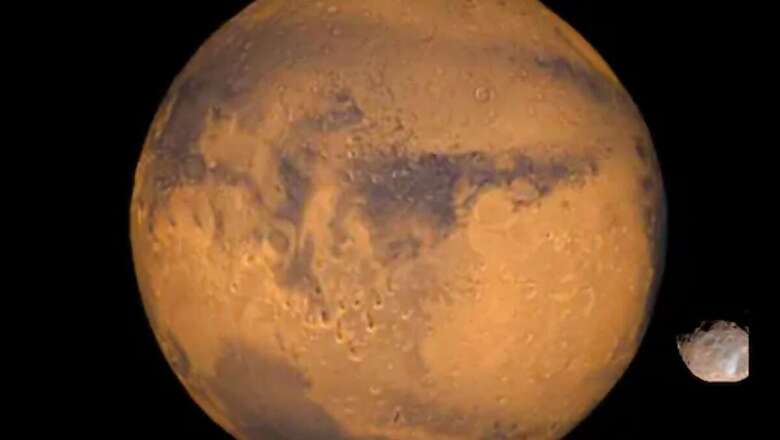
views
Scientists from United States’ National Aeronautics and Space Administration (NASA) and the German Aerospace Center have found out that organisms from Earth can temporarily survive on Mars. This comes as a result of an experiment launched in 2019, which the two space agencies had launched in order to study how long microorganisms from Earth could survive on the Red Planet. The two space agencies had launched several fungal and bacterial organisms to the Earth’s stratosphere back in 2019 as part of the MARSBOx experiment. The aim of the experiment was to determine if there is a chance of their survival in Mars. This, because the stratosphere closely resembles the conditions on the Red Planet and is a perfect place to send samples in order to figure out if they’ll survive on Mars. The scientists have now published a paper on their findings, where they have discussed how the spores of black mold survived the trip.
The microorganisms could only live on the surface of Mars temporarily, but the researchers found out that the spored could be relieved after they returned home. The team of scientists placed fungal spores of Aspergillus niger and Salinisphaera shabanensis, Staphylococcus capitis subsp. capitis and Buttiauxella sp. MASE-IM-9 bacterial cells inside the MARSBOx (or Microbes in Atmosphere for Radiation, Survival, and Biological Outcomes Experiment) aluminum container. There were two sample layers inside the container, with the bottom one being shielded from radiation so that NASA can separate the effects of radiation from that of other environmental conditions.
A NASA balloon was was used to carry the container to the stratosphere, where the samples were subject to Martian-like conditions and exposed to UV radiation over a thousand times more than the levels that cause sunburn. “With crewed long-term missions to Mars, we need to know how human-associated microorganisms would survive on the Red Planet, as some may pose a health risk to astronauts. In addition, some microbes could be invaluable for space exploration. They could help us produce food and material supplies independently from Earth, which will be crucial when far away from home,” said Katharina Siems, a team member from the German Aerospace Center.
NASA has been working hard to prevent the Moon and Mars from human contamination. The agency wants to make sure that it doesn’t mistakenly take organisms or other contaminants from Earth to other planets. Apart from that, bringing these contaminants home from could also negatively affect our environment. Siems explained that experiments like the MARSBOx mission “are an important way to help us explore all the implications of space travel on microbial life and how we can drive this knowledge towards space discoveries.”
Read all the Latest News, Breaking News and Coronavirus News here




















Comments
0 comment